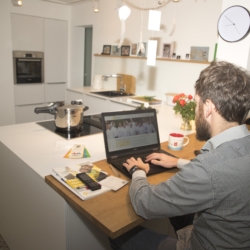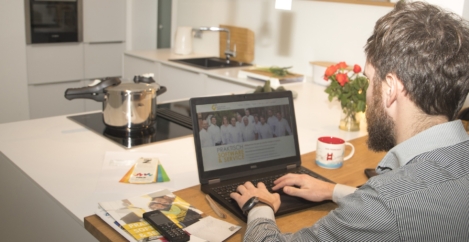October 12, 2020
Flexible working is here to stay as organisations recognise effect on productivity
 To mark the start of National Work Life Week, work-life balance charity Working Families has launched the results of a survey of employers who have invested in creating family-friendly workplaces with flexible working. Reflecting the views of 26 Working Families employer members, the survey gives a snapshot of employer best practice during the pandemic, showing how organisations have risen to the challenge of supporting their staff.
To mark the start of National Work Life Week, work-life balance charity Working Families has launched the results of a survey of employers who have invested in creating family-friendly workplaces with flexible working. Reflecting the views of 26 Working Families employer members, the survey gives a snapshot of employer best practice during the pandemic, showing how organisations have risen to the challenge of supporting their staff.
Jane van Zyl, Chief Executive of Working Families, said: “Lockdown was a challenging time for working parents and carers. But a silver lining to come out of it is that employers have realised that flexibility is possible in many more jobs than they had ever considered before. It’s clear from this survey that our employer members have found ways to improve their flexible working practices and offer much-needed support to parents and carers—all while improving performance overall. The fact that so many of our members are planning to retain this new level of flexibility into the future is a testament to how well it’s worked. I encourage other employers to follow their example and harness the gains in productivity, engagement, and diversity that flexible working offers.”
Key findings
• Productivity: 25 out of the 26 employers we spoke to felt that productivity had been the same or better than usual during lockdown. Employers attributed employees’ ability to maintain or even improve productivity to many factors, including emphasis on trust and outputs rather than presenteeism, existing familiarity with remote and agile working, reduced commute times, working hours that suited employees, and efficient technology.
• Changes in working patterns and location: Before COVID-19, just under half of respondents said that over half of their staff flexed their hours, and a quarter said more than half of their staff worked at least partly remotely. During COVID-19, 85 percent of respondents said at least half of their staff had flexed their hours, and 84 percent said at least half of their staff had worked exclusively remotely during lockdown. Looking to the future, 2 out of 3 employers surveyed plan to continue allowing the majority of staff to continue flexing their hours.
• Challenges: The main challenges of lockdown that employers cited were employee morale, engagement, communication, avoiding burnout, and mental wellbeing.
• Support for parents and carers: The pandemic presented an opportunity for employers to improve their support for parents and carers. 65 percent of employers said that their support for parents and carers was good or very good before lockdown. This skyrocketed to 100 percent after lockdown. All employers surveyed had offered employees with children the opportunity to work from home and flex their hours. In addition, many employers had offered wellbeing support, paid leave, acceptance of children appearing on video calls, and changed deadlines and objectives to reflect caring responsibilities.
Read full report here.
Image by Rolf Hassel

























